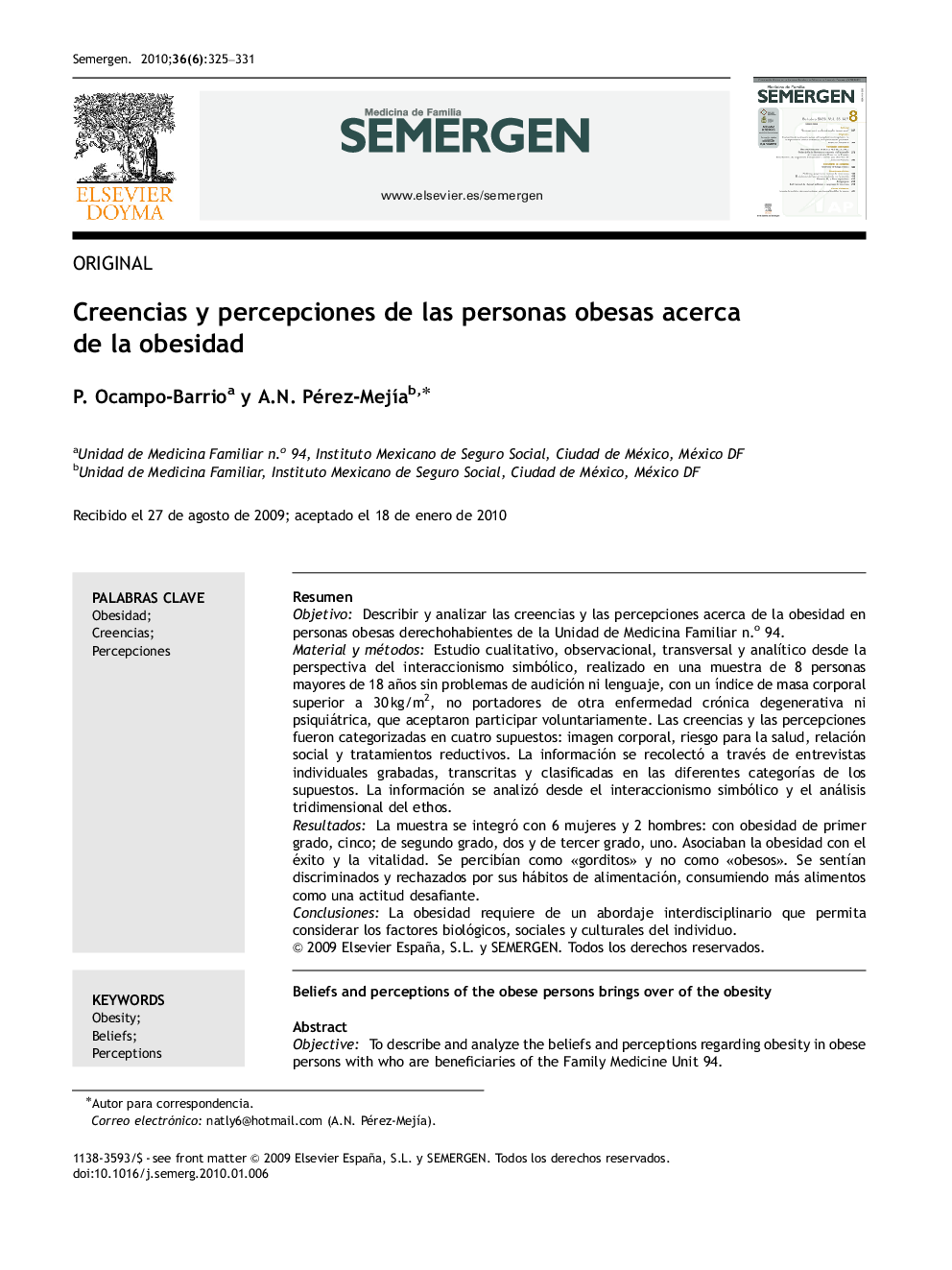| Article ID | Journal | Published Year | Pages | File Type |
|---|---|---|---|---|
| 3835662 | SEMERGEN - Medicina de Familia | 2010 | 7 Pages |
ResumenObjetivoDescribir y analizar las creencias y las percepciones acerca de la obesidad en personas obesas derechohabientes de la Unidad de Medicina Familiar n.o 94.Material y métodosEstudio cualitativo, observacional, transversal y analítico desde la perspectiva del interaccionismo simbólico, realizado en una muestra de 8 personas mayores de 18 años sin problemas de audición ni lenguaje, con un índice de masa corporal superior a 30 kg/m2, no portadores de otra enfermedad crónica degenerativa ni psiquiátrica, que aceptaron participar voluntariamente. Las creencias y las percepciones fueron categorizadas en cuatro supuestos: imagen corporal, riesgo para la salud, relación social y tratamientos reductivos. La información se recolectó a través de entrevistas individuales grabadas, transcritas y clasificadas en las diferentes categorías de los supuestos. La información se analizó desde el interaccionismo simbólico y el análisis tridimensional del ethos.ResultadosLa muestra se integró con 6 mujeres y 2 hombres: con obesidad de primer grado, cinco; de segundo grado, dos y de tercer grado, uno. Asociaban la obesidad con el éxito y la vitalidad. Se percibían como «gorditos» y no como «obesos». Se sentían discriminados y rechazados por sus hábitos de alimentación, consumiendo más alimentos como una actitud desafiante.ConclusionesLa obesidad requiere de un abordaje interdisciplinario que permita considerar los factores biológicos, sociales y culturales del individuo.
ObjectiveTo describe and analyze the beliefs and perceptions regarding obesity in obese persons with who are beneficiaries of the Family Medicine Unit 94.Material and MethodsA qualitative, observational, cross-sectional and analytic study made from the perspective of symbolic interactionism carried out in a sample of 8 persons over 18 years with not problems in hearing and language, with body mass >30 Kg/m2, who had no other chronic degenerative and psychiatric disease, who agreed to participate voluntarily. Their beliefs and perceptions were grouped into four suppositions: body image, risk for health, social relationship and reconducive treatments. Information was gathered using individual interviews, recorded and transcribed and classified under the different categories of the suppositions. The information was analyzed from Symbolic Interactionism and Tridimensional Analysis of Ethos.ResultsThe sample was made up of 6 women and 2 men. One had grade 5 obesity, two grade 2 and one grade 3. They associated obesity with success and vitality and considered themselves as “rather fat” but not as “obese.” They felt discriminated and rejected because of their eating habits, consuming more food as a challenging attitude.ConclusionsObesity needs to be studied using an interdisciplinary approach that would make it possible to consider the biological, social and cultural factors of the individual.
